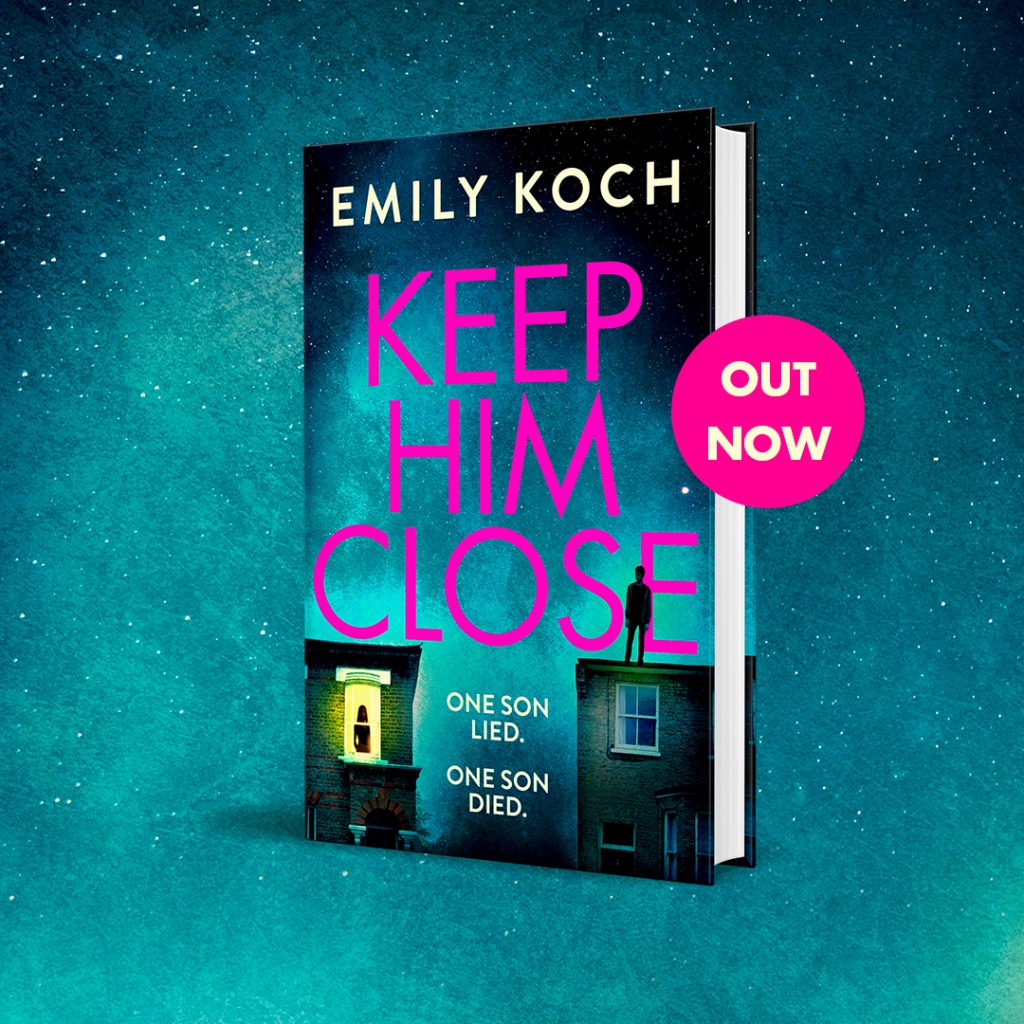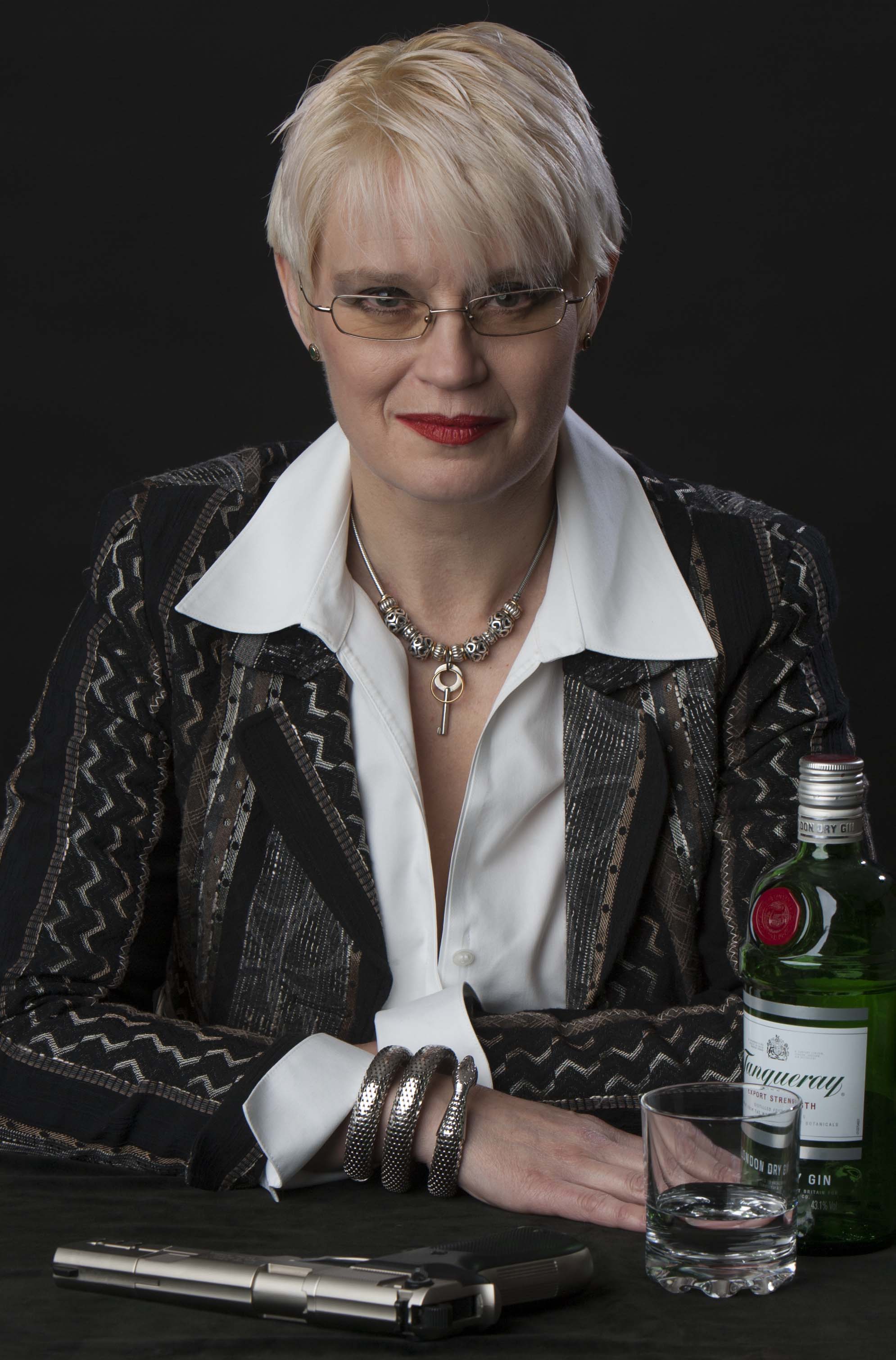Today I’m delighted to be joined by Emily Koch, author of ‘Keep Him Close‘ and ‘If I Die Before I Wake‘.
My thanks to Emily for taking the time to chat to me during these very strange times.
Vic x

Tell us about your books.
My debut, If I Die Before I Wake, is a psychological thriller about a man with locked-in syndrome, who discovers that the accident which put him in hospital was no such thing – someone tried to kill him. My second novel, Keep Him Close, just came out and it’s more of a dark domestic drama than a thriller. It’s about the friendship between a woman whose son has died and the mother of the boy accused of his murder.

What inspired them?
If I Die was inspired by a news item I heard on the radio one day about someone in a coma. It made me wonder about the family around that person, and what they were doing with their lives. Keep Him Close was inspired by the prison I live near to in Bristol. Some houses back on to the prison wall – it is surrounded on all sides by residential streets. I started thinking about what you’d do if you lived close to it and there was someone inside who had done something terrible to your family. How would you cope with that proximity?
What do you like most about writing? What do you dislike (if anything)?
When people read something I’ve written and get it. Sometimes that’s my editor, or a friend – but often I get the best feeling of connection from a totally unknown reader. With both books I’ve had reviews online, sometimes only a few lines, that have made me feel – yes, you really got what I was trying to do. I love those moments! I dislike the constant self-doubt, but I try not to listen to that voice in my head too much.
Do you find time to read, if so what are you reading at the moment?
Ha! Yes, I do find some time, but not a lot at the moment with two kids to run around after. I’ve just started Such a Fun Age by Kiley Reid.
Which author(s) has/have had the biggest influence on your writing?
In recent years the biggest influence has been Celeste Ng. I love her two literary thrillers, Little Fires Everywhere and Everything I Never Told You.
Where do you get your ideas from?
All sorts of places! Newspapers, radio news items, things I hear people say out and about, and the usual ‘what if…?’ situations that I think most people have running through their heads. Writers just know how to notice these and harness them. I firmly believe we all have great ideas – it’s knowing how to spot them and develop them that writers do more than most others.
Do you have a favourite scene/character/story you’ve written?
The ending of my debut is my favourite section I’ve written. It’s hard to talk about without giving the plot away! There’s also a scene in Keep Him Close where Alice, the mother of the dead boy Lou, is out in her garden looking at the prison wall with her surviving son, Benny. I loved writing that scene, and what they do in it to deal with their grief and anger at Kane, the young man in the prison accused of murdering Lou.
What are you working on at the moment?
Coming up with an idea for my third novel! Or, rather, developing it. I have the basic premise and I’m really excited about it – now it’s just a matter of fleshing it out bit by bit.
What’s the best piece of writing advice you’ve been given (and who was it from)?
Just keep turning up at your desk – that’s what my lovely agent Peter Straus told me eighteen months ago when I was exhausted and full of the aforementioned self-doubt, trying to work on a second draft of Keep Him Close while running around after a toddler, and in the first trimester of my second pregnancy. He said I just had to keep chipping away at the novel, day after day, and it would come together. It did!
Are you a plotter or a pantster?
Plotter. I love a good spreadsheet to plan out my novels. I find the planning part of the process incredibly fun and creative – and I feel confident when I start writing because I know the plot is solid.
Do you have any advice for aspiring writers?
Keep reading, keep writing – it’s basic but so true. Get some friends who are writing, too.
What’s been your proudest writing-related moment?
When my mum texted me to tell me she’d finished If I Die Before I Wake and said she’d loved it.

 Tell us about your book.
Tell us about your book.





